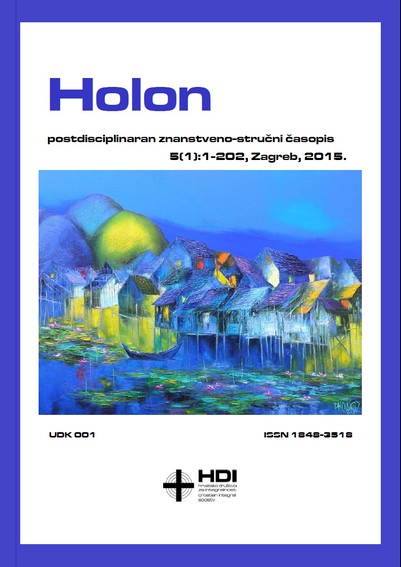Beckett i stvaralačka sila odsutnosti
Beckett and the creative force of absence
Author(s): Lana Mesmar ŽegaracSubject(s): Literary Texts
Published by: Hrvatsko društvo za integralnost
Keywords: absence; blank; discourse; forms and functions; language; pause; signifier; silence
Summary/Abstract: This paper describes and analyses the forms and functions of absence (blanks) in chains of signifiers in selected plays of Samuel Beckett. The theoretical approach is based primarily on the typology of blanks in signifying systems as devised by Werner Wolf. Absences are defined as intentional, significant blanks in chains of typical (expected) signifiers. In other words, they form part of the discourse, and not of the story level. Therefore, they are a part of the writing process of the implied author and support the primary or secondary meaning(s) of the text. Samuel Beckett uses blanks as a means of foregrounding the difficulty of communication and the unreliablilty and inadequacy of language, which presents a nauseating inevitability that the characters cannot escape. In this way, the theory of absence confirms and supports Beckett's position as a predecessor of postmodernism, and his plays, in turn, present absence and silence as a positive, creative force.
Journal: Holon
- Issue Year: V/2015
- Issue No: 1
- Page Range: 43-55
- Page Count: 13

